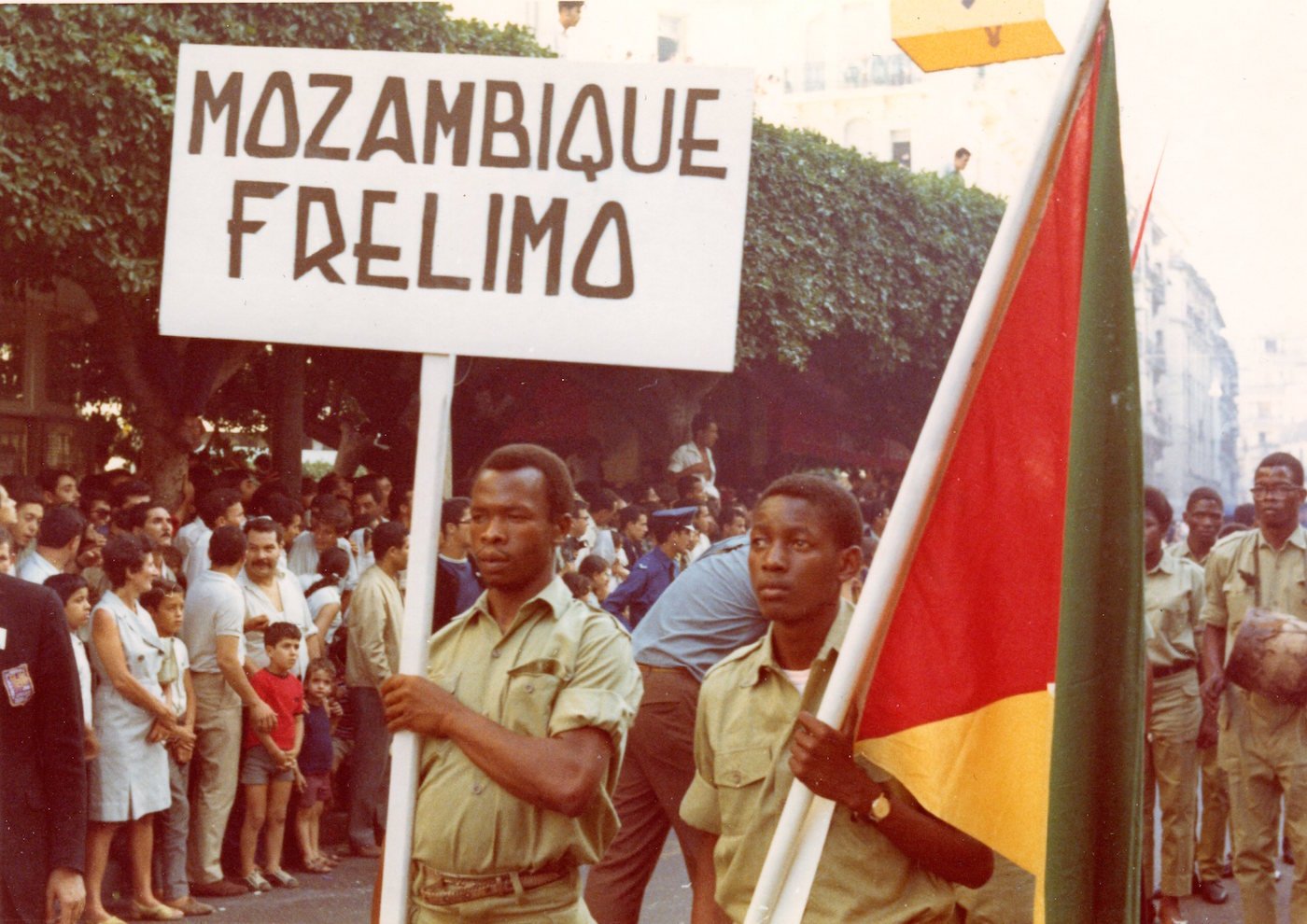Delegation Parade Frelimo. Photo: Luc-Daniel Dupire. Courtesy of PANAFEST archive (source: C&)
This symposium will explore the entwined legacies of anti-capitalist and anti-imperialist internationalism in the cinema with a view toward contemporary forms of politicized moving image culture. Presentations will focus on how film, in both its aesthetic strategies and broader circuits of distribution and exhibition, has worked as an instrument of global coalition building, imagining alternatives to the uninhibited flows of market finance and the militarized borders of the nation state. In confronting the problem of solidarity in its diverse geopolitical, historical, and conceptual dimensions, the symposium brings together a group of scholars whose work spans from the Communist international solidarity documentaries of the 1920s and 1930s, to the third cinemas and counter-cinemas of the 1960s and 1970s, to more recent iterations of world cinema, decolonial cinema, and the militant image. We aim to respond to a growing impetus within film and media studies to reopen both the influential and overlooked film radicalisms of the past in order to better conceptualize the role of cinema within the ideological battle-lines of advanced capitalism.
Toward this end, our discussion will be attentive to a series of guiding questions. How can contemporary notions of solidarity negotiate the apparent tensions between class and identity based critique, between indigeneity and globalization, and between Western models of Marxism and the specificities of the liberation movements of the Global South? How can the renewed investment in the cartography of the militant image interrupt orthodox Cold War narratives in favour of more dynamic models of geopolitical coercion and alliance building? In what ways does the urgency of climate change necessitate a rethinking of the concepts of “world cinema” and the “migrant image”? What are the continuities and ruptures between the militant cinemas of the past and the citizen journalisms of the present?
In investigating the problem of solidarity across time and space, we hope to furnish new concepts and vocabularies for the radical film theories of the future.
